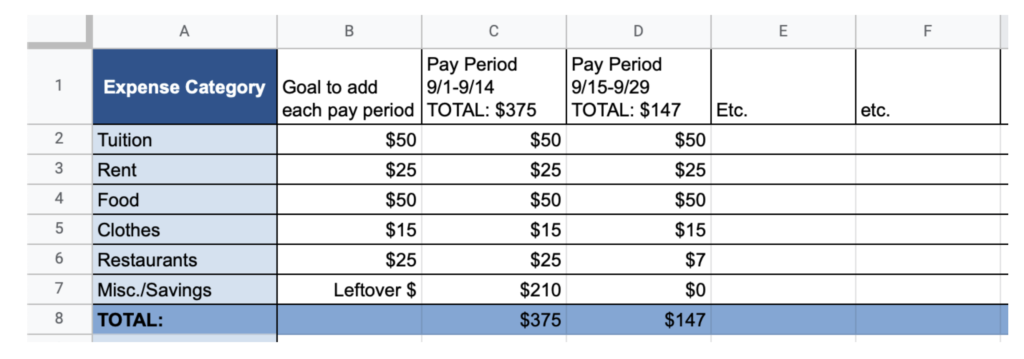by: Anna Cernohous
Happy Halloween and spooky season! As college students, the Sunday scaries are no stranger
and neither is how scary expensive it is to live away from your family. On top of tuition,
rent/room and board, you have to find money for food/snacks, new clothing, miscellaneous stuff
for everyday use, and still have some money left over for things that you want.
Every college student is ballin’ on a budget in some sort of fashion. I’m going to help you break
it down into three easy steps so it is manageable to look at and use to help you stay organized.
Know how much money you have in the first place.
Do you have a job? How much money do you earn each week? If you don’t have a job, how can you find easy things to do on the side to help earn a little extra cash? Usually there are people looking for babysitters, dog walkers, caregivers, and other jobs in the surrounding area. Look online on Indeed.com, Glassdoor, Whitewater’s website, and other sources. You can also join whitewater facebook groups that talk about little projects that people are looking to hire an extra pair of hands for. If none of those sound appealing to you, try looking at giving plasma through BioLife or completing surveys for research through sites like YouGov where you get paid to answer
questions.
Where does your money need to go?
Make areas of expenses: Tuition/school, rent, food, restaurants, new clothing, and other fun things to spend money on. With these areas, you will need to set aside enough money for tuition/school, rent,
and food first before you can add money to the areas that are considered to be more fun.
Time to organize.
At this point, you can organize the money in two ways:
1) in envelopes with the label of what the money is for on the outside and put money (or something that represents your money) inside
OR
2) by creating a spreadsheet that you can tally up how much money you are able to put into each area when you get paid. I recommend creating a spreadsheet because you can have it automatically stay updated with money totals for each category. Below is an example of a budget that I created. If you have any questions about how to create your own budget, feel free to spot by UC 253 (the reservations office) and ask for Anna – I would love to help!





Leave a Reply